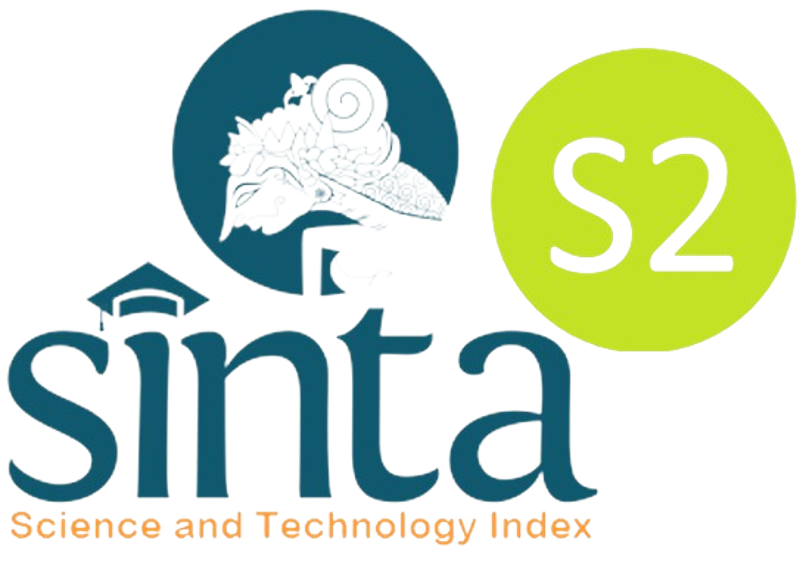Parents Perceptions Regarding The Implementation of Child Friendly School Policy in Early Childhood Education
Abstract
Abstract: Parents’ Perceptions Regarding the Implementation of Child-Friendly School Policy in Early Childhood Education. Objectives: This study aims to describe the perceptions of parents towards the implementation of child-friendly school policy in units of early childhood education institutions at kindergarten (TK). Method: This study used a qualitative-descriptive approachwith 47 participants who have been selected using a purposive sampling technique. Data were analyzed using Milles and Huberman's analysis. Findings: Parents' perceptions related to the implementation of child-friendly schools that have been applied in kindergarten Aisyiyah and TK Negeri Pembina tend to be positive in terms of the five concepts of child-friendly schools. Conclusions: Positive parent perceptions are very important to drive the success rate of implementing child-friendly school policies.
Keywords: parents, child-friendly school policy, early childhood education.
Abstrak: Persepsi Orang Tua Mengenai Implementasi Kebijakan Sekolah Ramah Anak pada Pendidikan Anak Usia Dini. Tujuan: Penelitian ini bertujuan untuk mendeskripsikan bagaimana persepsi orang tua terhadap penyelenggaraan kebijakan sekolah ramah anak pada satuan lembaga pendidikan anak usia dini di jenjang Taman Kanak-kanak (TK). Metode: Penelitian ini menggunakan pendekatan Kualitatif jenis deskriptif dengan 47 orang partisipan yang telah diseleksi menggunakan Teknik sampling purposif. Data dianalisis menggunakan analisis Miles and Huberman. Temuan: Persepsi orang tua terkait dengan implementasi sekolah ramah anak yang telah diterapkan di TK Aisyiyah dan TK Negeri Pembina cenderung positif dilihat dari lima konsep sekolah ramah anak. Kesimpulan: Persepsi orang tua yang positif sangat penting untuk mendorong tingkat keberhasilan penerapan kebijakan sekolah ramah anak.
Kata kunci: orang tua, kebijakan sekolah ramah anak, pendidikan anak usia dini.
Full Text:
PDFReferences
Abdi, A. P. (2018). JPPI Sebut Sekolah Ramah Anak Belum Maksimal Dikelola. Retrieved October 7, 2019, from https://tirto.id/dcJg
Abdi, A. P. (2019). KPAI : 24 Kasus Anak di Sekolah pada Awal 2019 Didominasi Kekerasan.
Anwar, M. N., Malik, A., & Khizar, A. (2016). A success story of child friendly school program: The comparative analysis. Gomal University Journal of Research, Special Issue IV, (Iv), 65–76. Retrieved from http://www.gu.edu.pk/new/GUJR/Issues-2017/ONLINE_ Special Issue_IV/7_Nadeem_ A Success Story of Child Story of Children Friendly School_.pdf
Berg, B. L. (2004). Qualitative Research Methods for The Social Science (5th Editio). Boston: Pearson Education.
Clair, N., Miske, S., & Patel, D. (2012). Child rights and quality education: Child-friendly schools in central and eastern europe (CEE). European Education, 44(2), 5–22. https://doi.org/10.2753/EUE1056-4934440201
Çobanoglu, F., Ayvaz-Tuncel Z., O. A. (2018). Child Friendly Schools: An Assessment of Secondary Schools. Universal Journal of Educational Research, 6(3), 466–477. https://doi.org/DOI: 10.13189/ujer.2018.060313
Creswell, J. W. (2015). 30 Essential Skill for the Qualitative Researcher (3rd ed.). Thousand Oaks, CA: Sage.
Creswell, J. W. (2018). Research Design: Qualitative, Quantitative, and Mixed Methods Approaches. Thousand Oaks, CA: Sage.
Cross, D., Barnes, A., & Barnes, A. (2014). Understand and Respond to Family Influences on Children ’ s Bullying Behavior : Friendly Schools Friendly Families Program, 5841(November 2017). https://doi.org/10.1080/00405841.2014.947223
Desforges, C., & Abouchaar, A. (2003). The Impact of Parental Involvement , Parental Support and Family Education on Pupil Achievements and Adjustment : A Literature Review with. Education, 30(8), 1–110. https://doi.org/10.1016/j.ctrv.2004.06.001
Esterberg, K. G. (2002). Qualitative Methods In Social Research. New York: Mc. Graw Hill.
Hornby, G. (2011). Parental Involvement in Childhood Education: Building Effective School-Family. Verlag New York: Springer.
KemenPPPA. (2014). Peraturan Menteri Negara Pemberdayaan Perempuan dan Perlindungan Anak Republik Indonesia No.8 Tahun 2014 Tentang Kebijakan Sekolah Ramah Anak. Jakarta.
KemenPPPA. (2019). Sekolah Ramah Anak. Retrieved August 25, 2019, from https://sekber-sra.com
Komariah, A., & Satori, D. (2011). Metode Penelitian Kualitatif. Bandung: Alfabeta.
McMillan, J. H., & Schumacher, S. (2001). Research in education: A conceptual introduction (5th ed.).
Modipane, M., & Themane, M. (2014). Teachers ’ social capital as a resource for curriculum development : lessons learnt in the implementation of a Child-Friendly Schools programme. South African Journal of Education, 34(4), 1–8.
Orkodashvili, M. (2010). Quality education through Child-Friendly Schools : resource allocation for the protection of children ’ s rights. Paper Don’t Published, 1–7.
Safrudin Amin. (2018). EVALUASI KEBIJAKAN SEKOLAH RAMAH ANAK DARI ASPEK KEKERASAN FISIK. Yogyakarta State University.
Sari, D. P. (2017). Evaluasi Pelaksanaan Program Sekolah Ramah Anak sebagai Upaya Pencegahan Tindak Kekerasan Terhadap Anak. Universitas Negeri Lampung.
Sugiyono. (2007). Metode Penelitian Kuantitatif, Kualitatif, dan R&D. Bandung: Alfabeta.
Sugiyono. (2010). Metode Penelitian Pendidikan Pendekatan Kuantitatif, Kualitatif, dan R&D. Bandung: Alfabeta.
Sukmadinata & Saodih Nana. (2007). Metode Penelitian dan Pendidikan. Bandung: PT. Remaja Rosdakarya.
Syafi’i, A. (2017). Upaya Kepala Sekolah dalam Mewujudkan Sekolah Ramah Anak di SDIT Nur Hidayah Surakarta Tahun Pelajaran 2016-2017. Institut Agama Islam Negeri Surakarta.
Tresiana, N., Duadji, N., Putri Dianti, R., & Fahmi, T. (2018). Pelatihan Mendesain Kebijakan dan Strategi Sekolah Ramah Anak Pada Satuan Pendidikan. Sakai Sambaian (Jurnal Pengabdian Kepada Masyarakat), 2(1 (Maret)), 41–48.
Refbacks
- There are currently no refbacks.
Copyright (c) 2020 Jurnal Pendidikan Progresif

This work is licensed under a Creative Commons Attribution-ShareAlike 4.0 International License.
View My Stats

The copyright is reserved to The Jurnal Pendidikan Progresif that is licensed under a Creative Commons Attribution-ShareAlike 4.0 International License.






